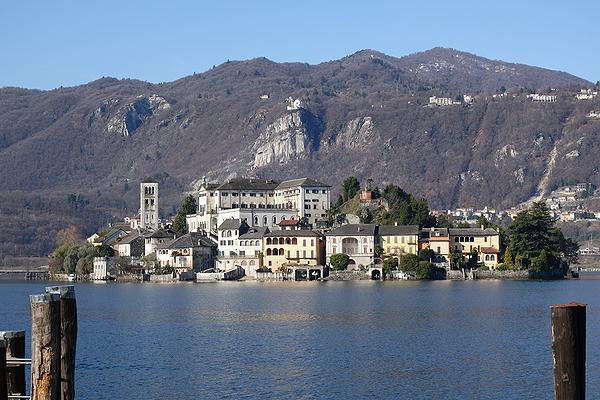ITALY CHRONICLES
Latest Posts

New! Italy Photo Contests – Show Off Your Photos of Italy
If you, like me, you think Italy is extremely photogenic, you might be interested to hear that Italy Chronicles is to run photo contests. The
Italian Politics – Still a Mess
Here’s a roundup stroke overview of what’s going on in the decidedly odd world of Italian politics. Broadly, there are three political factions in Italy,
Wild Boar Hunting in Italy
Ever thought about wild boar hunting in Italy? Maybe not but perhaps you might like to. Italy has a bit of a problem with wild
Berlusconi Heart
On Thursday in Italy headlines were dominated by the news that Silvio Berlusconi, a former and controversial prime minister, required an urgent heart operation and had
Money People – The World’s Biggest Problem
What’s that old saying? Ah yes, “money is the root of all evil”. From what is happening in Italy and elsewhere around the world, there
Italian Politics – Still a Mess
Here’s a roundup stroke overview of what’s going on in
Wild Boar Hunting in Italy
Ever thought about wild boar hunting in Italy? Maybe not
Berlusconi Heart
On Thursday in Italy headlines were dominated by the news
Money People – The World’s Biggest Problem
What’s that old saying? Ah yes, “money is the root
Italy
Best Selling Italian Coffee Top 10
Here is the May 2012 Italian coffee Top Ten compiled from Amazon.com. As you will discover, Italian coffee roaster Lavazza is still dominating the Italian

Via Paolo Sarpi, Milan and its Super Shops
I live in the the Via Paolo Sarpi area of Milan in Italy. It’s a very pleasant neighbourhood which is close to Milan’s centre and
Rome and Milan Differences
After my brief jaunt to Rome, I thought I’d write a little about some of the differences I’ve noticed between Italy’s largest two cities.
Renzi, So Far, Not So Good
Despite having sold himself as the “scrapper” of Italian politics, new Italian prime minister Matteo Renzi presented Italy with a government which was far from

Results: Italy Elections 2013
Well, the result is, er, no conclusive result. No single political party or coalition earned enough votes to form a working majority and it’s not

No Future in Italy for the Young
Low salaries, unclear career paths, and a distinct lack of meritocracy are aspects of Italy’s job market which have caused many young Italians to look for jobs outside of Italy. Italian brain power, which is not to be underestimated, is moving away, and may never return.
Accident Black Spot Milan, Italy – accident not an hour ago
Yet another accident today right outside my house. A motorcyclist hit a car, and was taken away by ambulance, not half an hour ago.
Free Wi-Fi in Parco Sempione, Milan!
Yes, a free wifi service in Milan, Italy now exists and, most probably, works. If you manage to make it to the end of this post about my wifi exploits, then you will find a link to a list of free wifi hotspots in Milan.
Properties

The Admirable Admiral’s Villa in Taormina
If you know your history pretty well, you may be aware that one of England’s most celebrated Admirals possessed a rather charming villa in the scenic Sicilian town of Taormina.

How to Find Property for Rent in Italy
Maybe you are coming to Italy to work or study here for a while, in which case, you’ll need somewhere to live. If that’s the
House For Sale near Milan
Gaetano Salvo, friend and Blog from Italy researcher wants to sell his house. For those who might be interested, or may know of someone or

The Admirable Admiral’s Villa in Taormina
If you know your history pretty well, you may be aware that one of England’s most celebrated Admirals possessed a rather charming villa in the scenic Sicilian town of Taormina.
House For Sale near Milan
Gaetano Salvo, friend and Blog from Italy researcher wants to sell his house. For those who might be interested, or may know of someone or
Places to stay in Italy
Chaplin Bed and Breakfast Rome
Perfectly located in a safe and quiet but extremely central Rome neighborhood, the Chaplin Bed and Breakfast Rome is the ideal base for your Roman holiday.
Casa Villatalla B&B, Liguria
By far the most important members of the Casa Villatalla household are Nellie (an elderly but loveable chocolate Labrador), Bonnie, a fluffy and rather scatty American Spaniel, and Pickle, aneccentric cat who walks like John Wayne.
Villa Miller Bed and Breakfast, Puglia, Italy
Located well off the main road in the depths of the Puglia countryside, Villa Miller the only sounds which disturb guests are those of the crickets and the ringing of the bells worn by the areas cow and sheep population.
Chaplin Bed and Breakfast Rome
Perfectly located in a safe and quiet but extremely central Rome neighborhood, the Chaplin Bed and Breakfast Rome is the ideal base for your Roman holiday.
Villa Miller Bed and Breakfast, Puglia, Italy
Located well off the main road in the depths of the Puglia countryside, Villa Miller the only sounds which disturb guests are those of the crickets and the ringing of the bells worn by the areas cow and sheep population.

